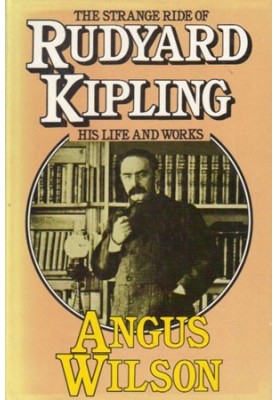The Strange Ride of Rudyard Kipling: His Life and Work
 Instant download
Instant download
after payment (24/7)
 Wide range of formats
Wide range of formats
(for all gadgets)
 Full book
Full book
(including for Apple and Android)
Exhaustive Biography Of Rudyard Kipling By One Of The Formost Writers Of Modern British Fiction. An Enchanting Read.ONE of the more grotesque falsificationstaste, and it is usually propounded in schools, is the pious belief thata work of literature must be morally pure and right‐minded before itcan wholly satisfy us. No villain can enthrall us, the argument runs;no villainy or repulsive opinion can persuade or inspire. And yet ifthis were so, half of literature would be lost to us in our self‐denyingrefusal to see, as Angus Wilson puts it in this superb criticalbiography of Rudyard Kipling, “the difficult truth that aestheticsatisfaction is not one with ethical satisfaction.” There are morallydisgusting stories that one reads with absolute enchantment and, fromthe Jacobeans onward, villains who are truer and vastly more enjoyablethan saintly heroes who never put foot wrong.AngusWilson's “The Strange Ride of Rudyard Kipling” (the title insists onKipling's resemblanCe to his fictional wanderer, Morrowbie Jukes)answers with utter clarity this vexed question of taste. Mr. Wilson,like Kipling a colonial (he was born in South Africa), novelist andnonfiction writer with a wide and demanding public and a professed lovefor India and travel, is admirably suited to write about Kipling. Andbecause there is so much family in Kipling, so much to understand aboutchildren and parents, it is useful to know that Mr. Wilson's father wasborn the same year as Kipling. Many of Mr. Wilson's insights derive fromthis special search to rediscover a much misunderstood father and tovindicate a long‐suffering mother. In the past, Mr. Wilson has chosenmonumental subjects — “Emile Zola” (1950), “The World of CharlesDickens” (1970) — and he seems drawn especially those whose images seemfixed and familiar, who are superficially congenial but on closer reporttortuously complicated.Kiplingembarrasses critics, and even his biographers have felt the necessity tosuppress stories they have found morally untidy or politically dubious.We have had to endure the preposterous suggestions that Kipling wasn'treally an imperialist, or vindictive in his fictions, or that he didn'tscoff at some races and hate others. But he did believe in the salvationof imperialism, and any number of his poems and stories indicate hishatred for certain races or groups of people. No, not Indians, though hemade Kim's companion a Buddhist rather than a Hindu; but apart from hisapproval of the term “Fuzzy Wuzzy” in his home in the Sudan, he neverreferred to Africans as other than “Hubshis” (a neat Hindi evasionderived from “Abyssinians”) and he believed that the Germans weresatanic. These views in fine and subtle works have caused confusion andhave made Kipling one of the most misunderstood writers in the language.
LF/998531312/R
Data sheet
- Name of the Author
- Angus
Wilson - Language
- English
- ISBN
- 9780436575167
- Release date
- 1977

























